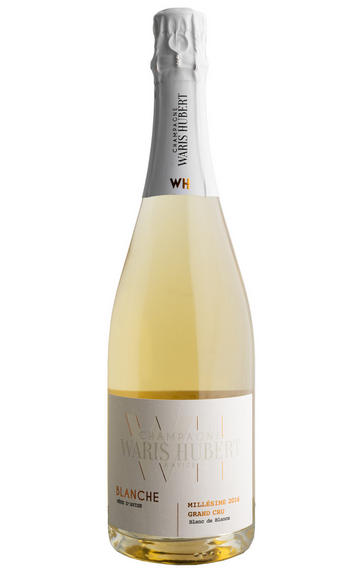
2017 Champagne Waris Hubert, Blanche, Blanc de Blancs, Grand Cru, Avize, Extra Brut
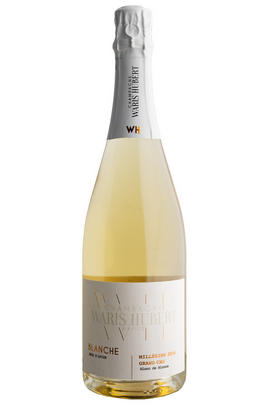
About this WINE
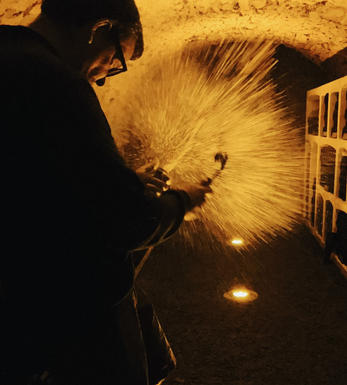
Champagne Waris Hubert
An independent family business, Champagne Waris Hubert is run by Olivier Waris, his wife Stephanie, and their three children. The family have a long history of farming in the area, but only started making Champagne in 1998. Now, they hold 18 hectares that are all in organic conversion and will achieve certification in 2023.
With Olivier, there is no recipe or status quo. Individual parcels and lieux-dits are vinified differently depending on the vintage, creating a broad spectrum of wines. The heart of their estate lies in the legendary Avize terroir, but they also farm Grand Cru vineyards across Oger and Cramant, alongside some Premier Cru sites in neighbouring regions.
As a relative newcomer in this historic region, Waris Hubert has not been bound by the constraints of market expectations or legacy. Instead, the domaine has been able to instigate change and leapfrog the quality of many famous names, in a relatively short period of time. Olivier combines slow cold fermentations, low sulphur use and extended lees ageing to create an artisan range of Champagnes that are richly textured and expressive, combining the very best of modernity and tradition.
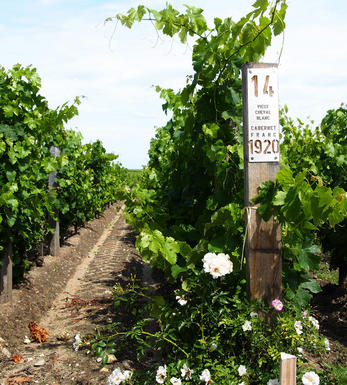
Blanc de Blancs
In Champagne, the term Blanc de Blancs designates Champagnes made only from Chardonnay grapes. The vineyards located between Cramant and Mesnil-sur-Oger in Cote de Blancs yield the best examples of the style.
A classic Blanc de Blancs is restrained and elegant when young, yet with ageing it develops a mouth-coating brioche richness that overlays an intense expression of fruitiness. Blanc de Blancs are endowed with longer ageing potential than a typical Blanc de Noirs.
Recommended Producers: Salon, Billecart Salmon, Jacques Selosse, Dom Ruinart, Krug, Le Mesnil Grand Cru, Guy Larmandier
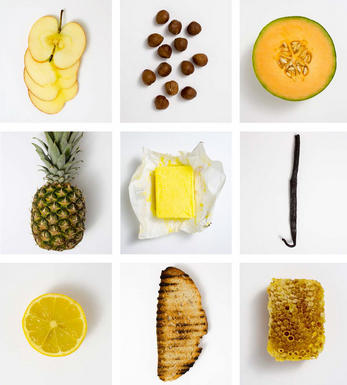
Chardonnay
Chardonnay is often seen as the king of white wine grapes and one of the most widely planted in the world It is suited to a wide variety of soils, though it excels in soils with a high limestone content as found in Champagne, Chablis, and the Côte D`Or.
Burgundy is Chardonnay's spiritual home and the best White Burgundies are dry, rich, honeyed wines with marvellous poise, elegance and balance. They are unquestionably the finest dry white wines in the world. Chardonnay plays a crucial role in the Champagne blend, providing structure and finesse, and is the sole grape in Blanc de Blancs.
It is quantitatively important in California and Australia, is widely planted in Chile and South Africa, and is the second most widely planted grape in New Zealand. In warm climates Chardonnay has a tendency to develop very high sugar levels during the final stages of ripening and this can occur at the expense of acidity. Late picking is a common problem and can result in blowsy and flabby wines that lack structure and definition.
Recently in the New World, we have seen a move towards more elegant, better- balanced and less oak-driven Chardonnays, and this is to be welcomed.


Buying options
Add to wishlist
Description
This Grand Cru cuvée, named for Olivier’s daughter, is a stunning expression of Avize Chardonnay from a challenging year. The vines average 40 years of age, entirely organically grown on chalky and clay soils. The nose has a complex and inviting bouquet of golden apples and pears, with a delightful interplay of white peach and acacia blossoms.
The palate is textured and expressive, with a more restrained edge than the opulent 2016 – shy at first, but the 2017 really develops in the glass, proof of the quality of the terroir. The finish retains a lovely mineral edge and a hint of cinnamon and sweet spices.
Drink now until 2033
Davy Żyw, Senior Buyer, Berry Bros. & Rudd (September 2023)
wine at a glance
Delivery and quality guarantee